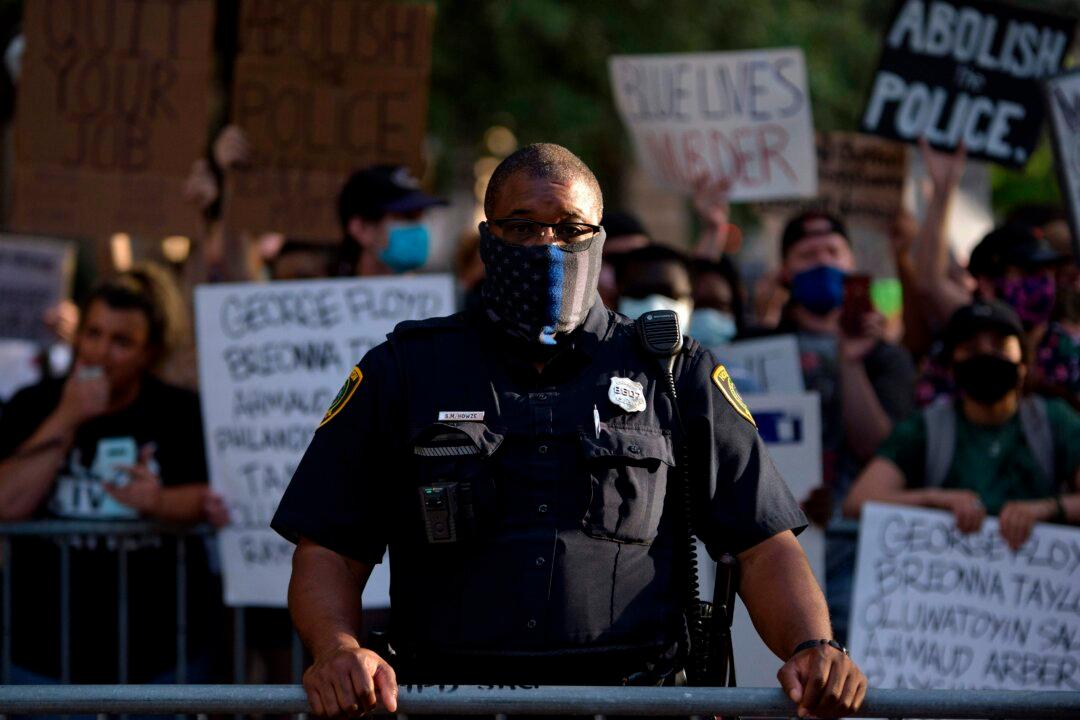The Texas Senate on Tuesday passed a bill that would block local governments from reducing their law enforcement budgets without voter approval, in the Republican-led state legislature’s latest pushback against calls to “defund the police.”
Senate Bill 23, which passed the state Senate in a bipartisan 28-2 vote, requires a local election before any city or county in Texas can cut law enforcement funds as a percentage of its overall budget, lower the number of officers, or reduce funds per officer for training and recruitment.





